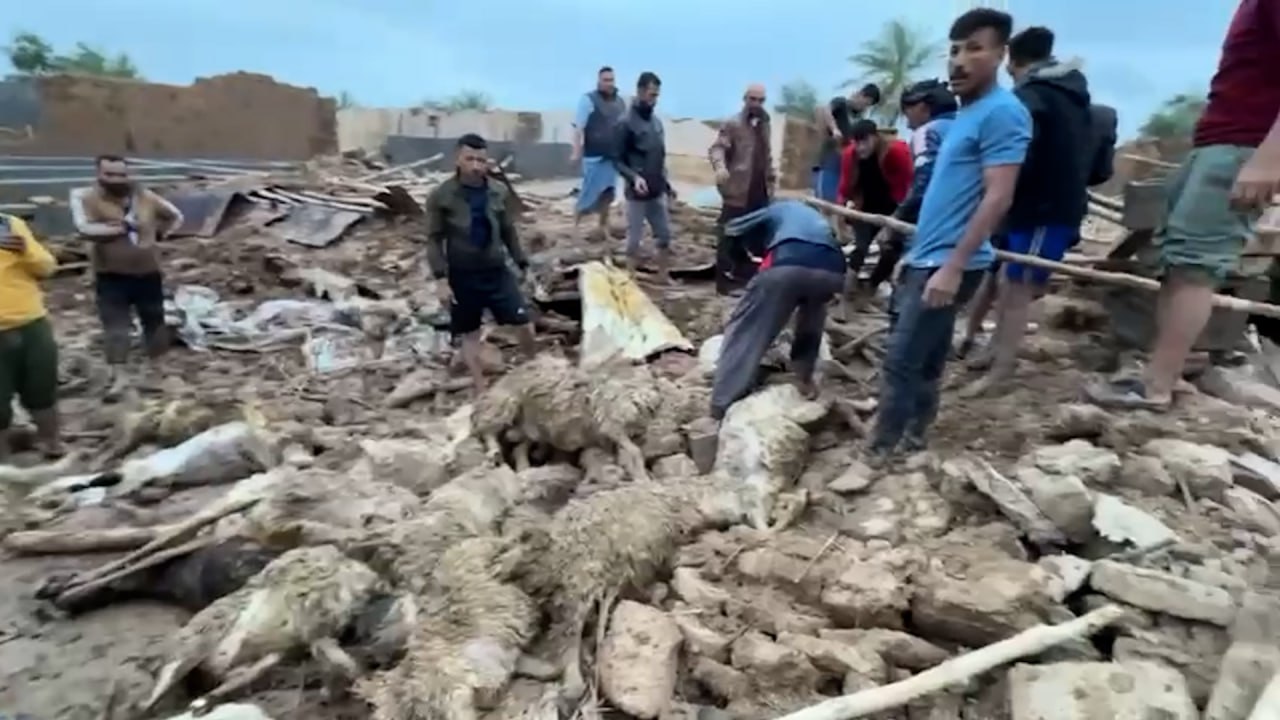US airstrike in Baghdad kills Iranian commander Soleimani, PMF leader Muhandis

ERBIL (Kurdistan 24) – US airstrikes targeting a convoy leaving Baghdad international Airport killed the military chief of Iran’s extraterritorial operations branch, Qassim Soleimani, as well as a prominent commander in an Iranian-backed Iraqi militia group, a major escalation between Washington and Tehran.
The Pentagon said that the “decisive defensive action” to kill Soleimani came at the direction of US President Donald Trump and aimed to deter “future Iranian attack plans.” It further accused the infamous Iranian general of orchestrating attacks on anti-ISIS Coalition bases, which saw an uptick in recent months.
The US statement came following confirmation by Iranian and Iraqi security authorities.
Soleimani, who was the commander of the Quds Force of the elite Islamic Revolutionary Guard Corps (IRGC), “was martyred in an attack by American helicopters early morning today,” the IRGC-affiliated Fars news agency quoted a military statement as saying.
The official media channel of the Hashd al-Shaabi—an alliance of mostly Iranian-backed Shia militias also known as the Popular Mobilization Forces (PMF)—said on Twitter that it “confirms” the deaths of Soleimani and the deputy commander of the PMF, Abu Mahdi al-Muhandis.
The Quds Commander had just arrived at the Baghdad International Airport when Muhandis and a number of other PMF members were welcoming him. As they rode together, rockets struck near their vehicles, killing at least five people including Soleimani and Muhandis.
“Haj Soleimani and Abu Mahdi al-Muhandis were riding in one vehicle when it was struck by two successive guided missiles launched from an American helicopter while they were on their way from the arrivals hall on the road that leads out of Baghdad Airport,” Reuters quoted as saying a local militia commander, Abu Muntathar al-Hussaini.
Muhandis is also the chief of the Kata’ib Hizbollah (KH) militia group, which Washington has accused of being behind rocket attacks late last month on an Iraqi base hosting American troops that killed a US civilian contractor.
Following this, a US air operation struck five KH facilities near the Iraqi-Syrian border, killing upwards of 25 fighters and wounding dozens of others. This was the culmination of months-long building of tensions as militia groups launched multiple attacks on Iraqi military bases hosting American troops.
In a show of the group's influence on Tuesday, KH organized a march towards the fortified Green Zone in Baghdad and stormed the US embassy compound. Muhandis was seen at the site of this episode, along with other notorious PMF commanders.
Read More: Top Iraqi officials condemn attempts to storm US embassy in Baghdad
The US has announced this week that it was deploying additional troops to Iraq to prevent further attacks on the US embassy. US Defense Secretary Mark Esper said on Thursday that there were “some indications” that Iran and its proxy groups in Iraq “may be planning additional attacks,” Reuters reported.
“If that happens then we will act and by the way, if we get word of attacks or some type indication, we will take preemptive action as well to protect American forces to protect American lives,” Esper stated.
Iran and the West have been locked in tensions as Tehran continues violating critical terms of the 2015 nuclear accord after the unilateral withdrawal of the US from the deal and reinstitution of sanctions that have crippled Iran’s economy.
Iranian Foreign Minister, Javad Zarif, said on Twitter that Soleimani’s killing was “an extremely dangerous and foolish escalation,” stating further, “The U.S. bears responsibility for all consequences of its rogue adventurism.”
Soleimani has been leading Iran’s successful efforts to entrench itself in destabilized Middle Eastern countries such as Yemen, Iraq, Syria, Lebanon, and Palestine by arming, training, and funding proxy groups that have come into prominence over the years.
Soleimani's death marks a turn into unknown territory as Iran's National Security Council convened to plan an appropriate response to the death of a general who in many ways acted as the right-hand man of Supreme Leader Ayatollah Ali Khamenei, who had granted the commander legendary status.
Mohsen Rezaei, a former IRGC commander of the IRGC and currently the secretary of the influential Expediency Discernment Council, promised “vigorous revenge on America” for his comrade’s death.
Editing by John J. Catherine

